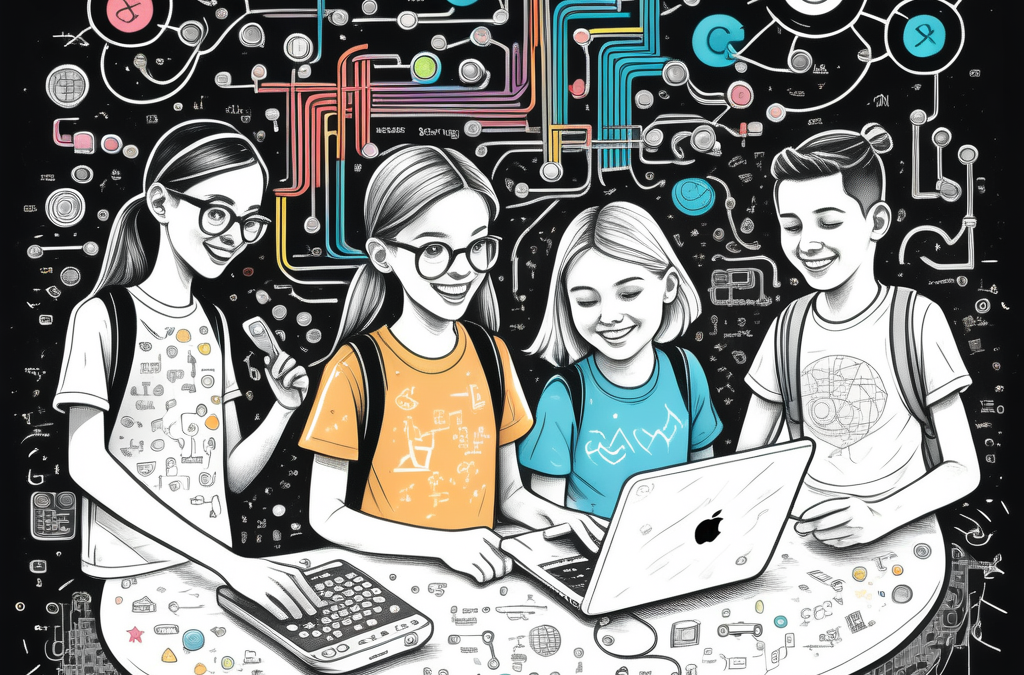Programming languages are like keys that unlock the digital universe, enabling you to transform your creative ideas into reality. If you’ve ever dreamed of creating a video game, designing an awesome website, or diving into the thrilling realm of data analysis, you’re in the right place. Just as learning a new spoken language helps you connect with different cultures, mastering a programming language opens pathways to exciting careers and innovative projects. Whether you’re a curious middle schooler or a young professional, understanding how to choose the right programming language tailored to your interests and goals is the first step toward an exhilarating coding journey.
What Makes Programming Languages So Exciting?
Programming languages allow you to communicate with computers and bring your ideas to life. There are numerous languages, each tailored for specific tasks:
- Web Development: JavaScript, HTML, CSS
- Data Analysis: Python
- Game Development: C++, C#
Selecting the right language impacts how easily you can learn and complete your projects. By choosing a language that aligns with your personal interests and goals, you make the learning process enjoyable and effective.
Clarifying Your Coding Ambitions: What Do You Want to Create?
Before diving into programming, reflect on your goals:
- Web Development: Interested in crafting stunning websites? HTML, CSS, and JavaScript are your go-to tools.
- Game Design: Excited about creating thrilling games? Languages like C# (with Unity) or C++ are popular in the gaming industry.
- Data Science: Curious about analyzing trends? Python is a powerhouse language for data analysis and machine learning.
Set realistic learning objectives. Instead of trying to master a language overnight, focus on small, manageable projects. For example, aim to create a basic personal website or a simple game over several weeks. This approach boosts motivation as you see tangible progress.
Beginner-Friendly Languages: A Gateway into the Coding World
Jumping into programming can feel overwhelming, but some languages are perfect for beginners. Here are three of the best programming languages for new coders:
1. Python: The Versatile Powerhouse
- Accessibility: Python is beginner-friendly with clean and simple syntax.
- Versatility: You can build websites, analyze data, and even develop games.
- Support Community: A huge array of tutorials and resources makes learning Python enjoyable.
2. JavaScript: The Language of the Web
- Web Development: JavaScript adds interactivity to websites, making it essential for web developers.
- Resources: Many online platforms offer tutorials to help you master JavaScript effectively.
3. Scratch: The Fun Introduction to Coding
- Visual Learning: Scratch uses a block-based interface, allowing young programmers to create games and animations easily.
- Creativity: Scratch promotes problem-solving and creativity, making it ideal for beginners.
These beginner-friendly languages are accessible and versatile, opening doors to exciting tech journeys.
The Importance of Community: Why Support Matters
A supportive community can make a huge difference in your coding journey. Languages like Python and JavaScript have thriving communities filled with:
- Forums and Tutorials: Numerous resources are available for learning.
- Mentoring Opportunities: Experienced coders often help newcomers, providing guidance and support.
Connecting with others can enhance your learning experience and keep you motivated.
Exploring Your Learning Style: Finding the Right Fit
Consider your learning style when choosing a programming language:
- Visual Learners: You might enjoy block-based languages like Scratch.
- Auditory Learners: Check out podcasts or video tutorials for languages like Python or JavaScript.
- Hands-On Learners: Start building projects right away to engage directly with coding.
Experimenting with different resources can help you discover which language feels the most intuitive.
Getting Hands-On: Experimenting with Different Languages
Dive into online platforms like Codecademy, Khan Academy, or freeCodeCamp to taste-test various languages. Try short courses to see what resonates with you. Build small projects, such as:
- A simple calculator in Python.
- A vibrant webpage using HTML, CSS, and JavaScript.
- An animation in Scratch.
This practical experience deepens your understanding and fills you with a sense of achievement.
Keeping the Momentum: Tips for Staying Engaged While Learning
Staying motivated while learning to code can be challenging. Here are some tips to keep your passion ignited:
- Set Small Goals: Focus on completing simpler projects first.
- Celebrate Victories: Each completed project boosts your confidence.
- Connect with Others: Join coding clubs or online forums to share progress and ask questions.
- View Challenges as Puzzles: When you hit a snag, take a break and return with a fresh mindset.
Always remember why you started coding—to create, explore, and solve problems. Let that motivation guide you.
Engaging Projects to Explore
As you embark on your coding journey, consider diving into exciting projects:
- Scratch: Create a simple game or an animated story.
- Python: Build a personal website or a basic data analysis project.
- JavaScript: Develop an interactive quiz or a webpage with dynamic features.
These projects reinforce your learning and keep the process enjoyable.
Conclusion: Your Unique Journey Awaits
As you stand at the beginning of your coding adventure, remember this is a unique journey filled with endless possibilities. Selecting the right programming language is crucial—it’s your creative weapon in a world full of ideas waiting to be realized. Embrace your interests and dive into different languages that align with your aspirations, whether it’s the simplicity of Python, the dynamic nature of JavaScript, or the playful approach of Scratch.
Stay curious, proactive, and resilient in the face of challenges. The skills you cultivate today will lead to exciting opportunities tomorrow. So, gear up, start coding, and let your creativity shine!


